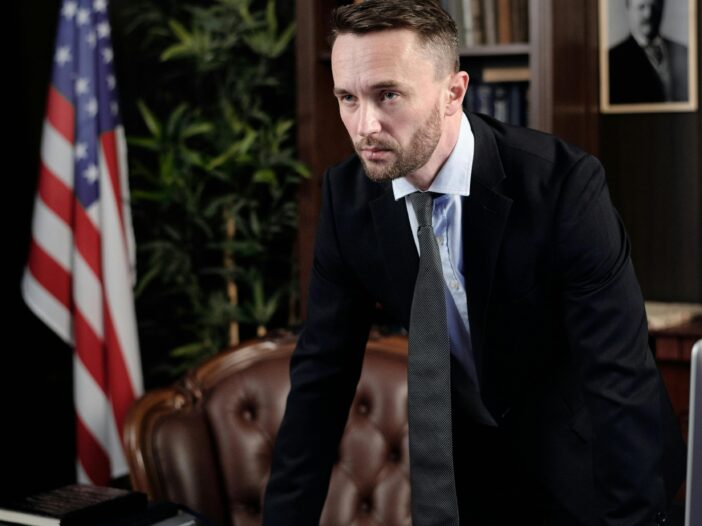
When can you sue a prosecutor for wrongful conduct?
By Loren Coffer, 2L at New England Law | Boston
General Background
“Prosecutorial immunity” is a judge-made doctrine that cloaks prosecutors in near-absolute immunity from suit. Under this doctrine, prosecutors cannot be sued for any actions related to their job as a prosecutor, no matter how egregious the behavior. Prosecutorial immunity is an absolute shield against damages lawsuits for claims that arise from prosecutorial actions.
There are essentially two types of immunities: qualified immunity and absolute immunity. Under doctrine of “qualified immunity” from 42 U.S.C. § 1983 liability, government officials are not subject to damage liability for performance of their discretionary functions when their conduct does not violate clearly established statutory or constitutional rights of which a reasonable person would have known. Absolute immunity, on the other hand, is a type of sovereign immunity for government officials that confers complete immunity from criminal prosecution and suits for damages, so long as officials are acting within the scope of their duties.
In determining whether particular actions of government officials fit within common-law tradition of absolute immunity from § 1983 liability, or only more general standard of qualified immunity, the court applies a “functional approach,” which looks to the nature of the function performed, not the identity of the actor who performed the alleged misconduct.
Acts undertaken by prosecutor in preparation for initiation of judicial proceedings or for trial, and which occur in course of their role as advocate for state, are entitled to protections of absolute immunity; when the prosecutor functions as an administrator rather than an officer of the court, they are only qualified to immunity from § 1983 liability.
Supreme Court Cases
In Buckley v. Fitzsimmons, 509 U.S. 259 (1993), the petitioner sought damages under § 1983 from respondent prosecutors for fabricating evidence during the preliminary investigation of a highly publicized case. The Supreme Court determined here that when a prosecutor is acting as an advocate for the State, they are then entitled to the protection of absolute immunity. Id. at 260. However, when the prosecution begins acting as an investigator or “searching for clues,” similar to the job description of police, they would not be entitled to such immunity. The prosecutor’s statements made to the media were also not entitled to absolute immunity, as these types of comments do not have any sort of functional connection to the overall judicial process.
A few years after Buckley, the Supreme Court had another § 1983 action against a prosecutor who prepared an individual’s applicant for arrest warrant. Kalina v. Fletcher, 522 U.S. 118 (1997). “The question presented is whether 42 U.S.C. § 1983 creates a damages remedy against a prosecutor for making false statements of fact in an affidavit supporting an application for an arrest warrant, or whether, as she contends, such conduct is protected by absolute immunity.” The Supreme Court held that: (1) prosecutor’s conduct in connection with preparation and filing of charging documents was protected by absolute immunity, but (2) prosecutor was not entitled to absolute immunity with respect to her actions in executing certification for determination of probable cause. The act of filing certification was not one of traditional functions of advocate, as neither federal nor state law required that prosecutors make certification and it could have been made by any competent witness.
Massachusetts Cases
In Penate v. Kaczmarek, 928 F.3d 128 (1st Cir. 2019), following the dismissal of his state drug distribution conviction, the plaintiff brought civil rights action against various defendants, including a prosecutor who had allegedly withheld exculpatory evidence she had obtained while prosecuting a drug laboratory chemist in a separate proceeding. The First Circuit Court of Appeals held that the prosecutor’s role in prosecution of drug laboratory chemist for tampering with evidence and drug possession did not entitle her to absolute prosecutorial immunity, and the prosecutor did not function as an advocate for the government in an evidentiary hearing associated with the criminal case against plaintiff, so as to entitle her to absolute immunity.
Recently in Massachusetts, the Supreme Judicial Court also determined that a social worker who initiated care and protection proceedings were protected under § 1983 for quasi-prosecutorial acts. C.M. v. Comm’r of Dep’t of Children & Families, 487 Mass. 639 (2021). Essentially, even if one is not considered to be a prosecutor in the eyes of the judicial system, if they are acting out a responsibility within that particular role, they can be entitled to protection/immunity. Id.
The long and short of it is that the law makes it very difficult to sue prosecutors for misconduct, and in many cases, impossible.